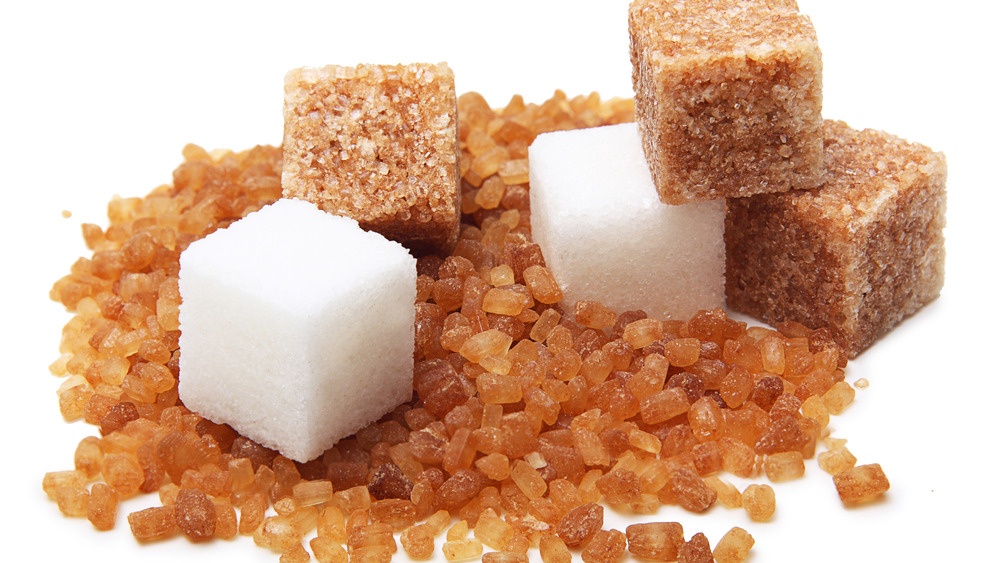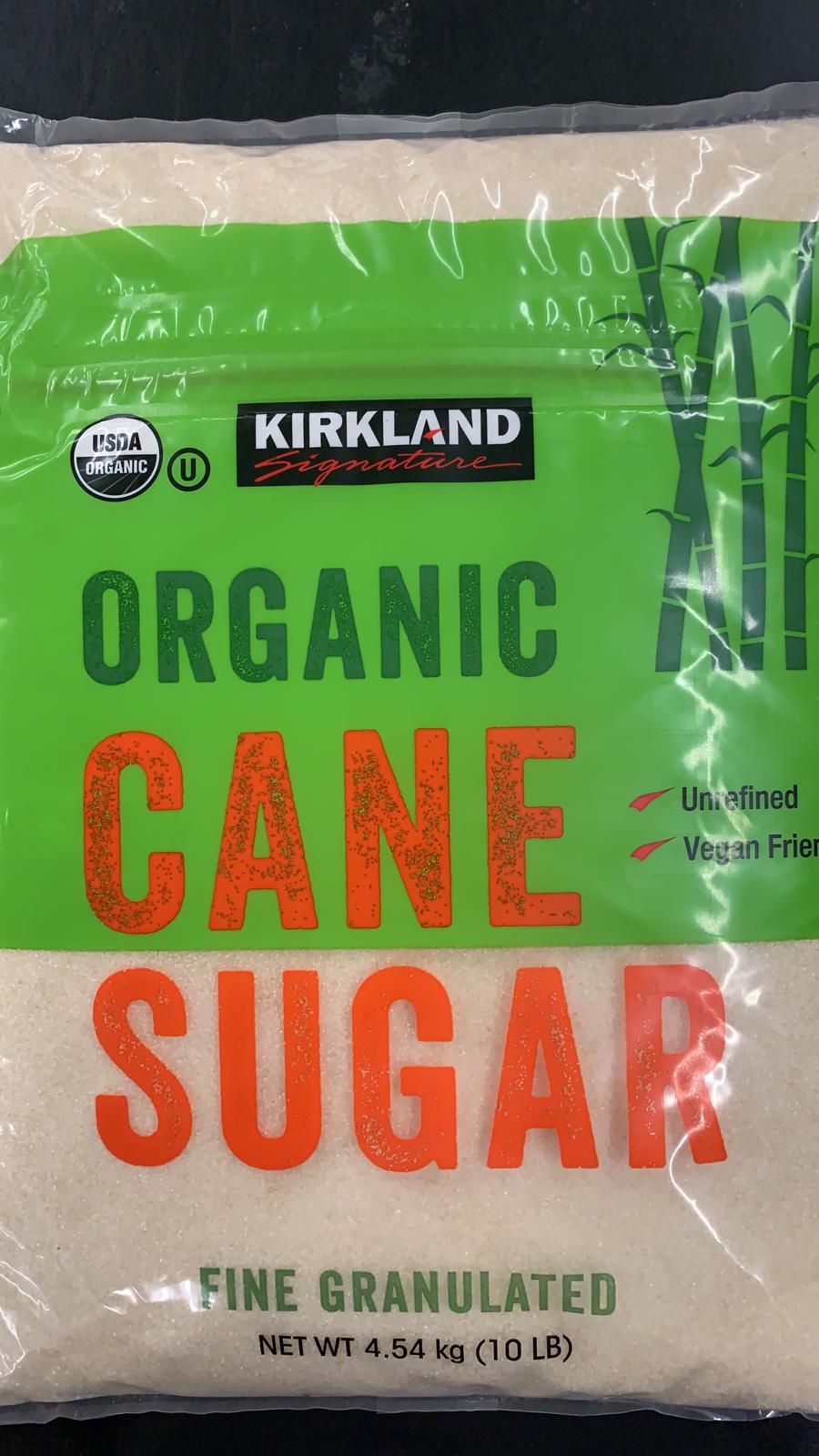An In-depth Summary of the Health And Wellness and Economic Ramifications of Walking Cane Sugar Processing on Regional Neighborhoods
Walking cane sugar handling plays an essential function in shaping the financial landscape of neighborhood neighborhoods, using employment chances and promoting supplementary markets. The wellness implications linked with high sugar intake can not be neglected, as they add to increasing rates of weight problems and diabetic issues.
Economic Advantages of Walking Stick Sugar Processing
Cane sugar processing provides substantial financial advantages that prolong beyond the immediate agricultural field. The farming and handling of sugarcane create many job chances, from farming to manufacturing and distribution. This employment generation not just supports neighborhood economies but also promotes neighborhood advancement by giving secure earnings resources for family members.
Moreover, the sugar sector boosts secondary businesses, including transport, devices supply, and packaging services (Cane Sugar Processing). As these fields grow, they add to an extra durable financial structure, enhancing overall area durability. The export possibility of refined walking cane sugar additionally amplifies financial benefits, placing regions as affordable players in international markets
Investment in modern-day handling facilities can lead to raised performance and effectiveness, therefore reducing waste and enhancing source use. This shift not only benefits the neighborhood economic climate but likewise supports sustainability initiatives by reducing ecological impacts.
In addition, the profits created from walking stick sugar processing can be reinvested in regional infrastructure, education and learning, and healthcare, advertising holistic neighborhood development. In general, the financial benefits of walking stick sugar processing are diverse, giving a structure for sustaining prosperity in agricultural areas.
Health Risks Connected With Sugar Consumption
Too much sugar consumption positions considerable health and wellness risks that call for serious attention. High consumption of included sugars, especially from processed drinks and foods, has actually been connected to many health issues. Among the most important concerns is obesity, as sugary diets add to a boosted calorie consumption without offering important nutrients. This excess can cause metabolic problems, consisting of kind 2 diabetes, which has actually ended up being increasingly prevalent in both kids and grownups - Cane Sugar Processing.
Additionally, high sugar usage is associated with cardio condition. Elevated blood sugar level degrees can result in insulin resistance, a forerunner to numerous heart-related issues. Furthermore, sugar can have detrimental impacts on dental health and wellness, causing dental caries and gum tissue disease, as bacteria in the mouth thrive on sugar, generating acids that deteriorate tooth enamel.
In addition, emerging research suggests a possible link in between high sugar consumption and psychological wellness disorders, such as depression and anxiety. As areas grapple with these wellness threats, it becomes vital to promote understanding and urge much healthier dietary selections. Resolving sugar consumption is essential not just for specific health yet likewise for the general health of neighborhood neighborhoods, stressing the requirement for extensive public wellness methods.
Ecological Impacts of Sugar Manufacturing
Regularly forgotten in conversations regarding sugar's effects is the significant ecological impact of sugar production. The growing of sugarcane frequently necessitates substantial land usage, leading to deforestation, loss of biodiversity, and interruption of local ecosystems. The conversion of woodlands and marshes right into sugar haciendas can cause environment damage, threatening various types and modifying environmental balance.
Furthermore, sugar manufacturing is resource-intensive, consuming considerable quantities of water for watering. This can lead to deficiency of neighborhood water resources, detrimentally influencing both farming methods and area accessibility to clean water. In addition, the use of chemical fertilizers and chemicals in sugarcane farming can contribute to soil degradation and water air pollution, as drainage from these chemicals goes into nearby rivers and lakes, influencing marine life and human health and wellness.
The ecological impact includes the processing phase, where energy usage and waste generation more intensify environmental concerns. Air contamination from melting sugarcane areas, along with greenhouse gas discharges, add to environment modification. Therefore, the environmental ramifications of sugar production warrant major factor to consider, urging stakeholders to take on even more sustainable methods to alleviate these damaging impacts on local ecosystems and communities.
Job Creation and Area Development
The environmental difficulties positioned by sugar manufacturing are commonly counterbalanced by its possibility for financial benefits, specifically in task production and neighborhood advancement. The walking stick sugar sector acts as a significant source of work in lots of country areas, providing tasks throughout various skill levels, from farming labor to processing and distribution roles. This employment not just supports individual households but likewise contributes to the overall financial vitality of neighborhood communities.
In addition, the establishment of sugar processing facilities boosts supplementary companies, such as transport solutions, devices supply, and maintenance companies. As these companies prosper, they create added work and bolster regional economic climates. The earnings generated from the sugar industry also causes boosted tax revenues, which can be reinvested right into social work such as education, framework, and health care development.
Additionally, the sugar industry typically takes part in neighborhood advancement campaigns, such as sustaining neighborhood colleges and health programs, therefore improving the lifestyle for citizens. my blog By fostering solid area ties and advertising economic growth, the cane sugar handling field plays an important role in uplifting regional populaces, making it an important element of lasting advancement approaches in sugar-producing areas.
Balancing Health And Wellness and Economic Development
In browsing the complexities of cane sugar processing, a critical obstacle hinges on balancing health and wellness considerations with economic development. The sugar sector significantly adds to neighborhood economic situations by generating tasks, stimulating related markets, and raising tax obligation incomes. Nonetheless, the wellness implications connected with extreme sugar consumption can lead to persistent diseases such as weight problems, diabetes mellitus, and cardiovascular issues, which can concern public health and wellness systems and lessen labor force productivity.

Additionally, regulatory frameworks can play a critical function in assisting market techniques in the direction of more health-conscious and lasting strategies. By fostering collaboration between government bodies, wellness companies, and the sugar industry, communities can navigate the dichotomy of wellness and financial development, making certain that the advantages of walking stick sugar processing are equitably shared while focusing on public health and wellness.
Final Thought
Finally, the handling of walking stick sugar provides both considerable economic benefits and remarkable health and wellness risks for neighborhood communities. While it fosters job development and boosts local advancement, the connected health and wellness issues, particularly regarding weight problems and diabetes, require a mindful balancing act. By advertising responsible intake and investing in area education and lasting practices, it is possible to take full advantage of financial advantages while minimizing adverse wellness impacts, therefore ensuring a healthier future for neighborhood populaces.
Additionally, sugar can have damaging effects on oral health and wellness, resulting in cavities and periodontal disease, as germs in the mouth thrive on sugar, generating acids that wear down tooth enamel.
Dealing read review with sugar intake is important not only for private wellness yet also for the general wellness of neighborhood areas, stressing the demand for extensive public wellness approaches.
Often ignored in conversations concerning sugar's effects is the significant environmental impact of look at here now sugar production. The health implications associated with excessive sugar consumption can lead to chronic conditions such as weight problems, diabetes mellitus, and cardiovascular problems, which can burden public health systems and diminish labor force productivity.
